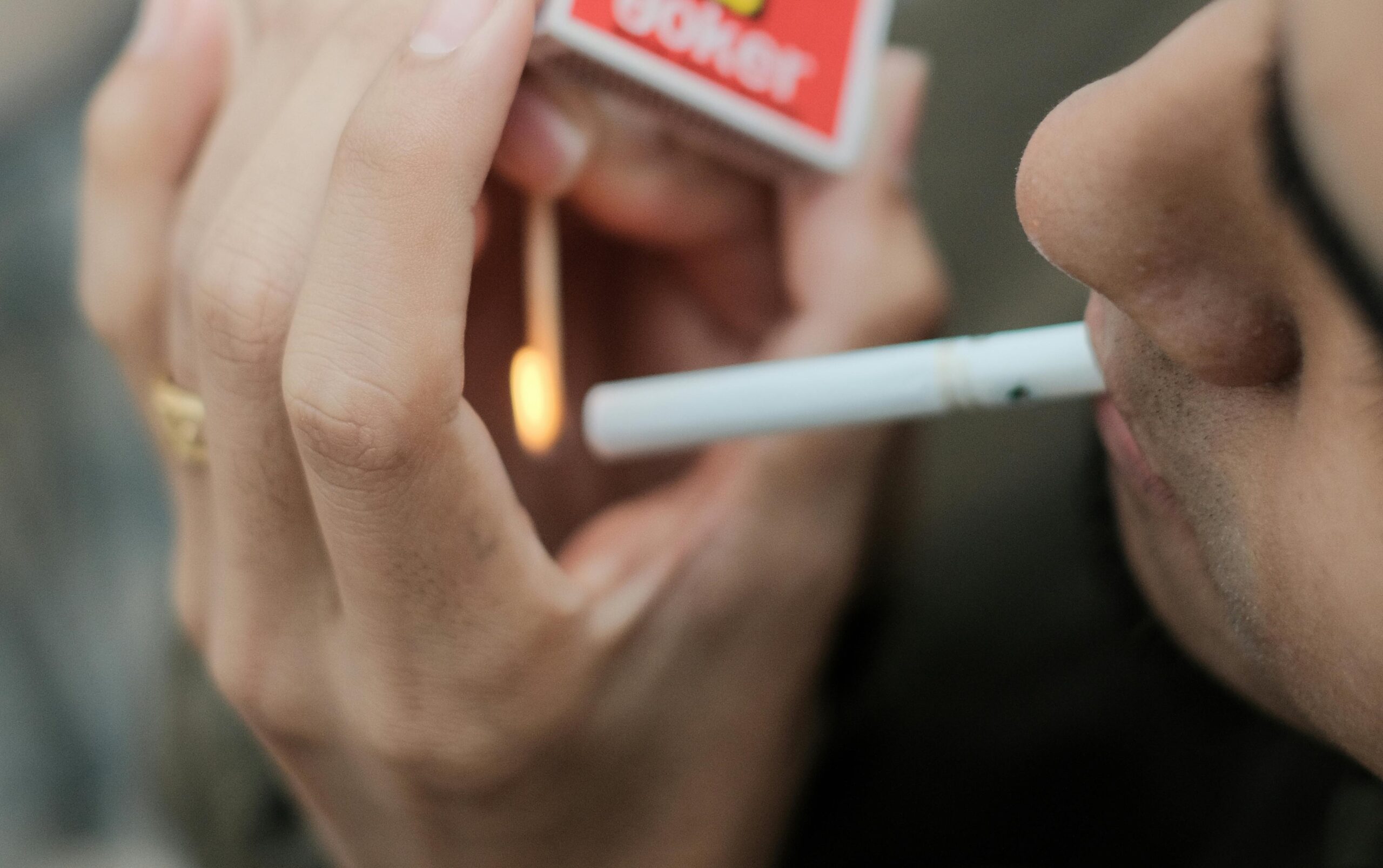Smoking is a well-known health hazard, linked to various serious conditions such as heart disease, lung cancer, and respiratory issues. However, many people overlook its significant impact on oral health. The effects of smoking on your teeth, gums, and mouth can be severe, leading to long-term damage if left unchecked. In this article, we’ll explore how smoking affects your oral health and why quitting is one of the best things you can do for a healthier smile. Concerned about the impact of smoking on your teeth? Contact Waldron Dental today for a comprehensive dental assessment and expert advice.
How Does Smoking Affect Oral Health?
The chemicals in tobacco smoke, including nicotine and tar, have a direct and detrimental effect on your mouth. These substances not only stain your teeth but also damage the delicate tissues inside your mouth, leading to a range of oral health problems.
1. Tooth Discolouration and Staining
One of the most noticeable effects of smoking is the discolouration of teeth. Tobacco contains tar and nicotine, which can stain your teeth a yellow or brown shade over time. The stains can become deep-set, making it difficult to achieve a bright smile even with regular brushing.
- How it Happens: The nicotine and tar in tobacco easily stick to the enamel, the hard outer layer of your teeth. Over time, these substances penetrate the enamel, leading to persistent stains that can only be removed with professional dental cleaning or teeth whitening.
- Impact: Stained teeth can be embarrassing and affect your self-confidence. Smokers often feel self-conscious about smiling, which can impact their social interactions and overall well-being.
Tip: Regular dental cleanings and professional whitening treatments at Waldron Dental can help remove tobacco stains and restore a brighter smile.
2. Gum Disease and Inflammation
Smoking is one of the leading risk factors for gum disease, also known as periodontal disease. Gum disease is an infection of the tissues that support your teeth and can range from mild gingivitis to severe periodontitis.
- How it Happens: Smoking reduces blood flow to the gums, depriving them of essential nutrients and oxygen. This weakens the gums, making them more susceptible to infection and less able to heal properly. Smokers are also more prone to plaque and tartar buildup, which can irritate the gums and lead to inflammation.
- Impact: Gum disease can cause swollen, bleeding gums, bad breath, and in severe cases, tooth loss. Smokers are up to six times more likely to develop gum disease than non-smokers.
Tip: If you notice any signs of gum disease, such as bleeding gums or persistent bad breath, seek immediate dental care at Waldron Dental for treatment and advice on managing your oral health.
3. Bad Breath (Halitosis)
Bad breath, or halitosis, is another common side effect of smoking. The chemicals in cigarettes linger in the mouth, contributing to an unpleasant odour that can be difficult to mask.
- How it Happens: Smoking reduces saliva production, which normally helps wash away food particles and bacteria. The dry environment created by smoking allows bacteria to thrive, leading to bad breath.
- Impact: Chronic bad breath can be embarrassing and affect your interactions with others, making it a source of social discomfort.
Tip: Regular dental check-ups and professional cleanings can help manage halitosis. Consider quitting smoking to address the root cause of the issue.
4. Oral Cancer Risk
Smoking is a major risk factor for oral cancer, which can affect the lips, tongue, cheeks, and throat. The chemicals in tobacco smoke are carcinogenic, increasing the likelihood of developing cancerous growths in the mouth.
- How it Happens: Long-term exposure to the toxins in tobacco damages the DNA in your mouth cells, leading to mutations that can result in cancer. Smokers are six times more likely to develop oral cancer than non-smokers.
- Impact: Oral cancer can be life-threatening if not detected early. Common symptoms include persistent sores, lumps, difficulty swallowing, and unexplained bleeding.
Tip: Regular oral cancer screenings at Waldron Dental are essential for early detection, especially if you are a smoker.
5. Delayed Healing After Dental Procedures
Smokers often experience delayed healing after dental procedures such as tooth extractions, implants, and gum surgery. The reduced blood flow caused by smoking impairs the body’s natural healing processes.
- How it Happens: Nicotine constricts blood vessels, limiting the oxygen and nutrients needed for tissue repair. This can lead to complications, infections, and longer recovery times.
- Impact: Delayed healing can result in prolonged discomfort and increase the risk of post-operative complications.
Tip: If you’re planning a dental procedure, consider quitting smoking before the treatment to enhance your body’s ability to heal.
What Can You Do to Protect Your Oral Health?
The best way to protect your oral health is to quit smoking altogether. This will not only benefit your mouth but also improve your overall health. If quitting feels overwhelming, start by reducing your intake and seeking support from healthcare professionals.
In addition to quitting smoking:
- Brush and floss your teeth regularly.
- Visit Waldron Dental every six months for check-ups and professional cleanings.
- Maintain a healthy diet to support gum health and prevent tooth decay.
Concerned About Your Oral Health? Contact Waldron Dental Today!
If you’re a smoker worried about the impact on your teeth and gums, don’t wait until problems escalate. Book an appointment with Waldron Dental for a thorough examination, professional cleaning, and tailored advice to help you maintain a healthier smile. Take the first step towards better oral health—contact us today to schedule your consultation!













